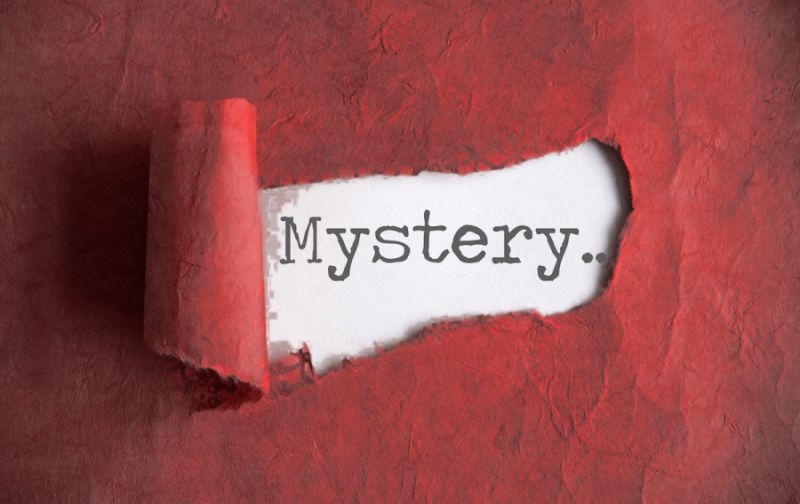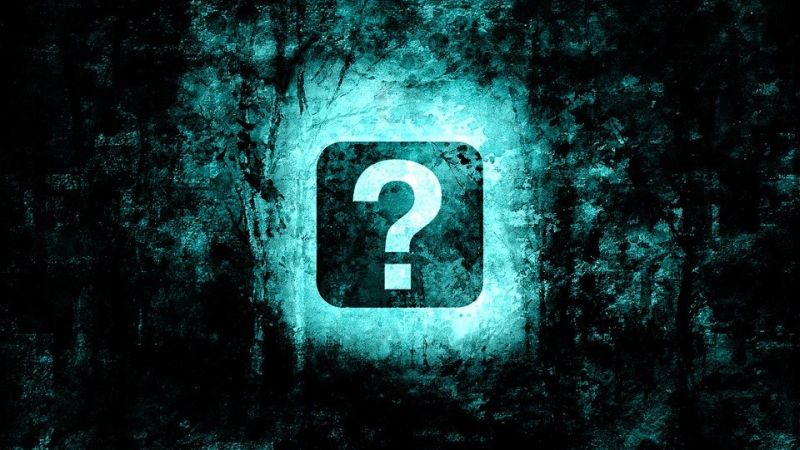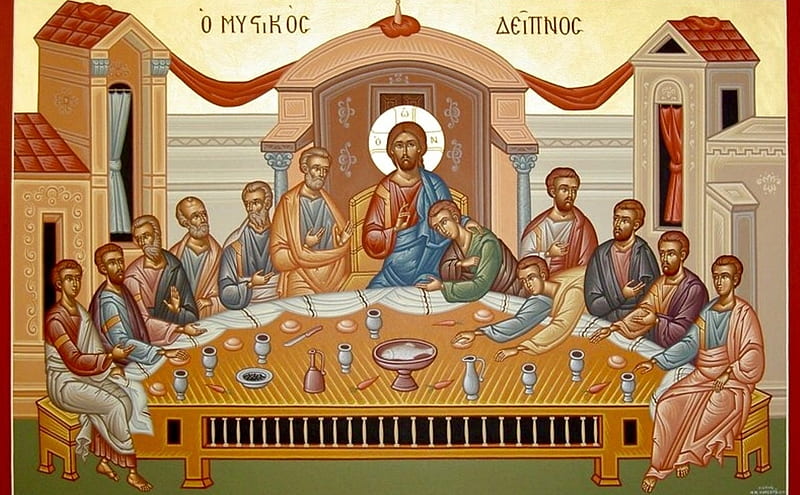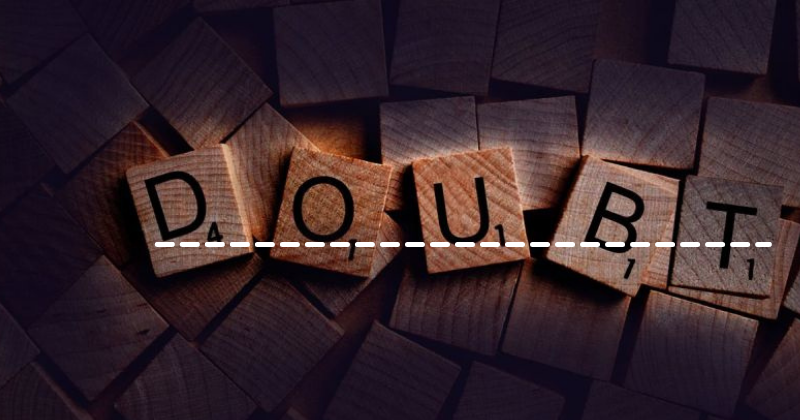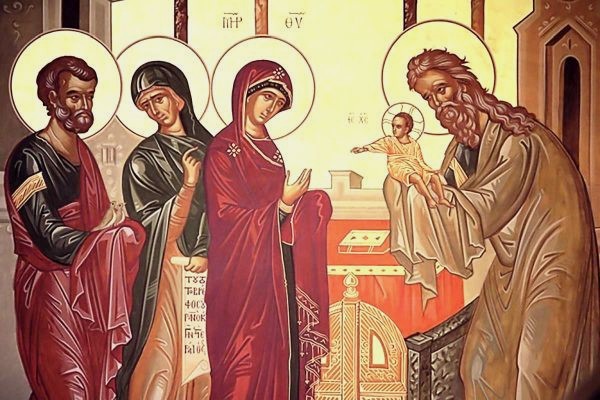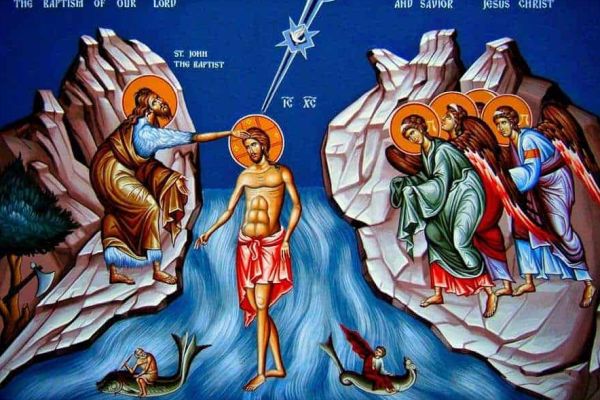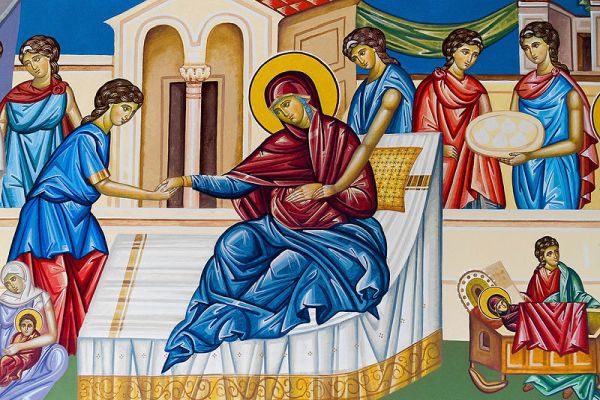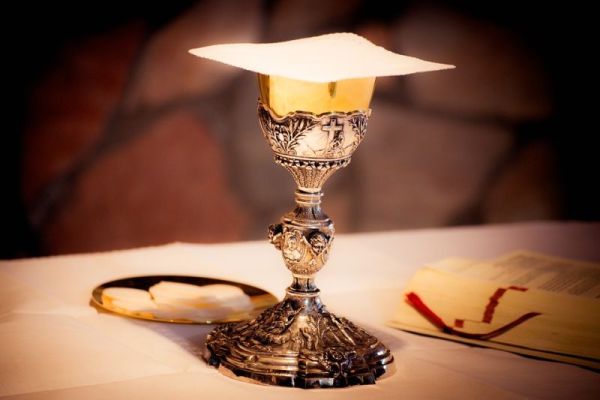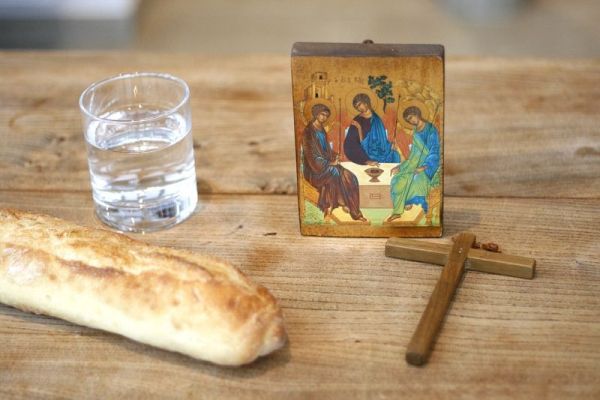M – for Mystery
The first letter in M E R C Y – the acronym for remembering what happens during Eucharist is M and it stands for Mystery.
If I go to any random person and ask, what comes to mind when you hear the word ‘mystery’, depending on what kind of mystery novels or movies they like, they will say Sherlock Holmes or Agatha Christie or CSI (the famous crime solving show) or something similar. The word mystery has to do with something which needs to be figured out, something like an enigma which must be ‘cracked’ by someone smart.
Now, in the Christian context, especially in the context of Eucharist, when we say, Eucharist is a ‘mystery’, the meaning is quite different. Church fathers say that mystery is something that has been ‘revealed’ for our understanding. It’s like a curtain has been drawn back revealing what was earlier hidden behind it. But we cannot understand it exhaustively – because it leads to the depth of God.1
You can’t dissect it. You can’t go to the depth of all of that and say – oh, ok; now I really understand! No, that is not what mystery means in the context of Eucharist. ‘Mystery’ is something revealed to us; yet something which we can’t figure out totally in our mind.
This definition must be borne in mind as we approach the ‘mystery’ of Eucharist.
Does it? Really?
Recently, I was conversing with someone who had experienced the Orthodox Divine Liturgy for the first time. Their biggest doubt was this – do you really believe that the gifts of bread and the wine become the body and the blood of Jesus Christ?
It’s a very good question. It means they paid careful attention to what was said during the Divine Liturgy. And it also means, they have zeroed in on possibly the biggest mystery in a Eucharistic service – the fact that the bread and the wine become the body and the blood of Christ.
My answer was – yes, we believe that the bread and the wine become the body and blood of Jesus.
Looking at their facial expressions I knew that my answer only raised more questions! How does it happen? When does it happen? Can you tell me that exact moment it happens? Physically does it change? Questions are aplenty!
Here is how I went about explaining it.
Beyond Understanding
Let’s go back in our minds to the setting of the Last Supper. Imagine that you’re one of those sitting around the table along with the disciples. Jesus is sitting right in the middle. Here is what happens.
And as they were eating, Jesus took bread, blessed and broke it, and gave it to the disciples and said, “Take, eat; this is My body.” Then He took the cup, and gave thanks, and gave it to them, saying, “Drink from it, all of you. For this is My blood of the new covenant, which is shed for many for the remission of sins.
Think about it for a moment. Remember, Jesus is sitting right in front of you, physically. You can touch and feel Him and then holding a piece of bread in His hand He’s saying – this is my body?! Taking the cup He’s saying – this is my blood?!
How can you explain that statement of Jesus?
You can’t! But are those His words? Absolutely. Were those words orally transmitted down by the apostles? Absolutely. How do I know? Read in 1 Corinthians Chapter 11. St. Paul repeats the exact same phrase although he had directly never heard from Jesus. (it, was handed down – oral tradition).
‘This is my body – broken for you; do this in remembrance of me.’2
In fact, those are the exact same words the celebrant repeats during the Eucharistic liturgy too.
No room for doubt
In fact in an earlier chapter, St. Paul writes3 ‘Is not the cup of Thanksgiving4 for which we give thanks a participation in the blood of Christ. And not the bread that we break our participation in the body of Christ?’
It’s a very clear statement; there is no room for doubt. It does not say – it looks like the body, looks like the blood, it feels that way etc. No, it just says as it is!
One of the church fathers, Justin Martyr, says this referring to the bread and wine at Eucharist,
“For not as common bread and common drink do we receive these… we been taught that the food which is blessed by the prayer of His word…is the flesh and blood of that Jesus who was made flesh.”5
So, yes, we as Orthodox Christians believe that the gifts of bread and the wine truly become the body and blood of our Lord Jesus Christ. But we also understand that ‘it is a mystery’ – something revealed to us, yet something we cannot understand or explain fully.
That’s why the sacrament of Eucharist or Holy Communion is referred to as the ‘Mystical Supper.’
So, what’s the application?
The main thing I can learn is this – it is not necessary to completely understand the nuances of all what’s happening to benefit from it!
OK, let me explain this way. A lot of people tell me – I cannot simply do something without fully understanding about it. OK. I understand what is being implied and I respect that opinion.
But let me ask you – do you really think that works in life?
For example – marriage. If you’re going to say, I want to understand all about marriage before I get married – you might as well give up planning to get married! My advice (as a married man), please don’t get married! Ask anyone who is married (honestly) and they will tell you – ‘I thought I knew what I was getting into it. But I was wrong!’ (This is not a statement made in a negative sense; but meant to portray the incomplete understanding someone who’s not married can have about marriage)
What about a job you take up? Do you really know everything about a job before you take it up? No, you don’t. You give your CV, and the person interviews you and you get selected! You think, you know all about the job. But then as you start your job, you realize you don’t know everything about it. You learn a lot ‘on the job!’
Things like marriage or taking up a new job are normal but incredibly life changing things for us. And yet we get into it without completely understanding it because we know and understand the benefits of it.
If somebody is scientifically inclined, I can give you the example of a wooden table. The table is a ‘solid’. And solids are made of atoms. And atoms are made of neutrons, protons, and electrons. Now, what do electrons do? They spin around the nucleus. And they spin around at a speed of 2,200 kilometers per second!6
Now, think about it. That simple looking ‘solid’ table which you use as your desk, is made up of millions of electrons spinning around in circles! Does that make complete ‘sense’ to you?
C.S. Lewis had a very interesting statement. He said, “Some people say, what good will it be for us if we do not understand it? A man can eat a dinner without exactly understanding how it nourishes him.”
It’s very true. To make a joke out of it, I sometimes ask – explain to me how a brown cow eating green grass gives you white milk. If my child comes and tells you – I will not drink milk till I completely understand the entire process of how milk is made by the cow and digested by a human, then I’d say – you don’t need to exactly understand all the science behind it to benefited by it. So, drink the whole cup of milk kiddo!
Conclusion
• I will approach the sacrament of Eucharist by faith and not by reason. I do not need to understand everything fully well, to be benefited from it!
• I will obey the command of Jesus – ‘Do this in remembrance of me’ even though I do not fully understand it and take part in the Eucharist.
• I believe that the elements mystically become the body and blood of Jesus during the Eucharist, because Jesus said – ‘It is my body.’
• I know it is of benefit for me because Jesus said – 7‘Unless I eat the flesh of the Son of Man and drink His blood, I will not have His life in me’8
Amen.
Click here to read the 1st part of this devotional. Click here to read the 3rd part of this devotional. Click here to read the 4th part of this devotional. Click here to read the 5th part of this devotional.
For Further reading:
1. Eucharist– Moran Mor Athanasisus Yohan I Metropolitan 2. The Eucharist and Liturgical Worship (Chapter 6), Know the Faith – Rev. Michael Shanbour1“In the Christian context, we do not mean by a “mystery” merely that which is baffling and mysterious, an enigma or insoluble problem. A mystery is, on the contrary, something that is revealed for our understanding, but which we never understand exhaustively because it leads into the depth or the darkness of God. The eyes are closed—but they are also opened.” ― Kallistos Ware, The Orthodox Way.
2I Cor 11:23-26
3I Cor 10: 16
4Thanksgiving is the word for Eucharist
5Justin Martyr: First Apology, 66
6https://education.jlab.org/qa/electron_01.html
7St John 6:53
8St. Ignatius calls it the ‘medicine of immortality’
